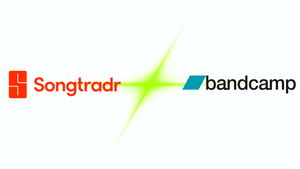US-based music licensing marketplace Songtradr yesterday announced that it is acquiring direct-to-fan platform Bandcamp from Fortnite maker Epic Games.
The news comes as Epic - still engaged in its legal battle with Apple over the so-called “Apple tax” - also announced that it is laying off 16% of its workforce, around 870 people, and divesting itself of SuperAwesome, a “youth marketing solutions” company that offers a range of advertising marketplaces and solutions targeting young audiences.
Epic’s acquisition of Bandcamp in March last year was a surprise to many in the music business. Some people expressed concern that the gaming company - which is 40% owned by Chinese tech giant Tencent - might be buying Bandcamp in order to give Tencent backdoor access to user data.
Commentary from the games business was more balanced, with suggestions that a Bandcamp and Epic tie-up could offer innovative models for selling music and reaching new audiences via gaming integrations. The Bandcamp purchase also made a certain amount of sense alongside two of Epic’s other acquisitions - artist community and sales platform ArtStation, and 3D/VR/AR modelling platform and marketplace SketchFab.
For the artists who use Bandcamp, there were also concerns that the change in ownership might result in a change of approach at the direct-to-fan company. Responding to those concerns at the time, founder and CEO Ethan Diamond insisted that “the products and services you depend on aren’t going anywhere, we’ll continue to build Bandcamp around our artists-first revenue model”.
As it turned out, Bandcamp seemed to operate pretty much autonomously from Epic following the acquisition. Although, when staff at the company unionised earlier this year, there were allegations that Bandcamp management had reached out to labels asking them to stop publicly supporting the unionisation move.
Some have suggested that Epic - a significant company in an industry that has been particularly resistant to unionisation - may have felt that the unionisation drive at Bandcamp could have unintended consequences for its wider business.
Whatever the truth of the matter, Bandcamp now has a new home as part of Songtradr, which says that it will “continue to operate Bandcamp as a marketplace and music community with an artist-first revenue share”.
Founded by Australian music entrepreneur Paul Wiltshire in 2014, Songtradr - which was valued last year as part of an equity raise at $425 million - has quietly acquired a string of music businesses over the past few years.
Those include licensing agency Big Sync Music; Peter Gabriel-founded Cuesongs; sonic branding company MassiveMusic; livestreaming “stream safe” music platform Pretzel; TV, film and gaming music identification database Tunefind; and music metadata platform Musicube. It also made investments in music credits platform Jaxsta.
Songtradr’s most recent acquisition - apart from Bandcamp - was the London based publicly listed company 7digital, in a £19.4 million deal that completed in March.
Bandcamp seems a natural fit for Songtradr’s suite of music licensing, data and delivery platforms. There are obvious and immediate ways that Songtradr can leverage the Bandcamp brand, catalogue and relationships with a huge number of artists to deliver value - whilst also being able to offer a number of clear commercial opportunities to the Bandcamp creator community.
"The acquisition of Bandcamp will help Songtradr continue to grow its suite of services for artists”, says Wiltshire. “I’m a passionate musician myself, and artistry and creativity have always been at the heart of Songtradr. Bandcamp will join a team of music industry veterans and artists who have deep expertise in music licensing, composition, rights management and distribution".
“Songtradr shares Epic and Bandcamp’s values around ensuring artists are fairly compensated for their work”, adds Steve Allison, VP and General Manager, Store at Epic Games. “Bringing Bandcamp to Songtradr will make it easier for independent artists to connect with creators and developers looking to license their music and enable Epic to focus on its core metaverse, games and tools efforts”.

